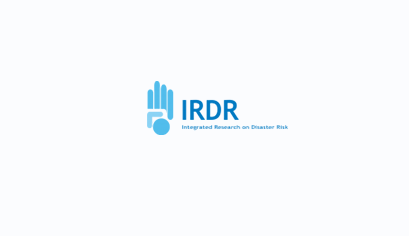The 2nd IRDR Young Scientists Lumos, co-hosted by IRDR and the U-INSPIRE Alliance, took place online as a pre-event for the 2025 Global Platform for Disaster Risk Reduction (GPDRR). Themed “Localization of the Global Agenda: DRR Solutions from Young Professionals,” this one-hour workshop highlighted how young scientists and professionals are transforming global disaster risk reduction frameworks into tangible, community-based solutions.
As disasters become more complex and climate-driven, localized, youth-led innovations are more crucial than ever. This Lumos showcased grassroots approaches including community-based early warning systems, nature-based solutions for climate resilience, and educational initiatives targeting vulnerable populations. Presenters from Iran, Austria, and India shared case studies on topics such as inter-organizational resilience networks, scenario generation for disaster preparedness, and building heat health warning systems. Esteemed commentators and DRR experts provided feedback and facilitate an engaging discussion.
The event supports the 2025 GPDRR theme, “Accelerate action for our collective sustainable future,” and reflects the global science priority to “Support regional and national science and knowledge for policy and action.”
Speakers:
Fatemeh Rezaei (Isfahan University of Medical Sciences)
Contact: f.rezaei.pro@gmail.com
Case Title: “Designing a Resilience Network for Inter-organisational Partnerships in Disasters”
Bernhard Garn (MATRIS Research Group)
Contact: BGarn@sba-research.org
Case Title: “Enforcing Sequential Diversity in Disaster Scenario Generation”
Jeevan Madapala (Rajiv Gandhi University of Knowledge and Technology)
Contact: jeevanm54@gmail.com
Case Title: “The Tiffin-Box: Insights from an Intervention to Build Community-Owned Heat Health Warning Systems”



